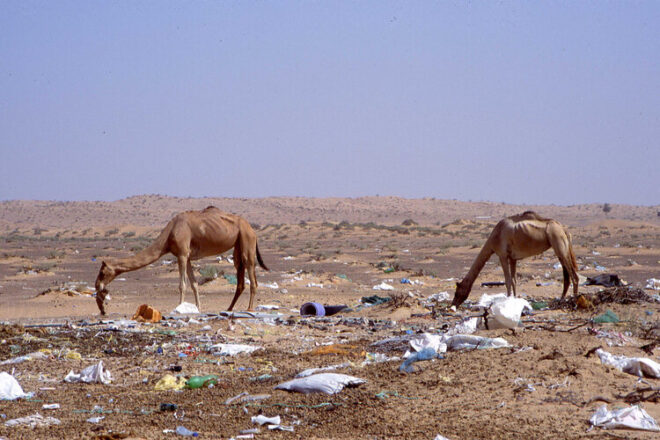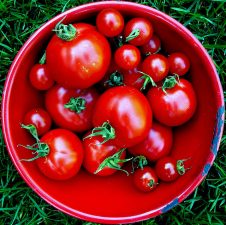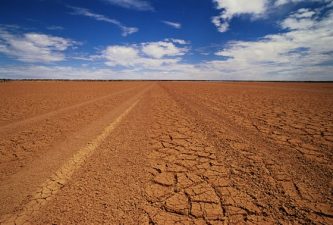One of the most jarring scenes I remember from my trip through Syria is the sea of plastic that rolled along the shore of a stretch of desert highway that linked Aleppo to Damascus. This was 20 years ago and the problem with plastic in the throwaway Middle East where boys want a plastic bag for a can of Red Bull is just getting worse. Let’s look to Dubai where the camels are dying from starvation. Their bellies full of plastics and ropes that starve them to death.
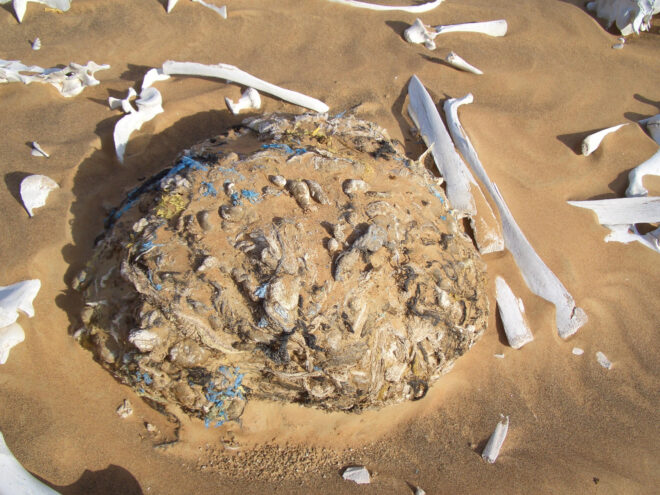
A new scientific study showing that desert camels are dying from mistaking plastic bags for food has lead pioneering plastic pollution researchers and others to call for a radical shift in how we discuss the problem that’s harming life in all environments on Earth–on land, not just in the sea.
One researcher covering the problem found 2000 plastic bags in the stomach of one camel.
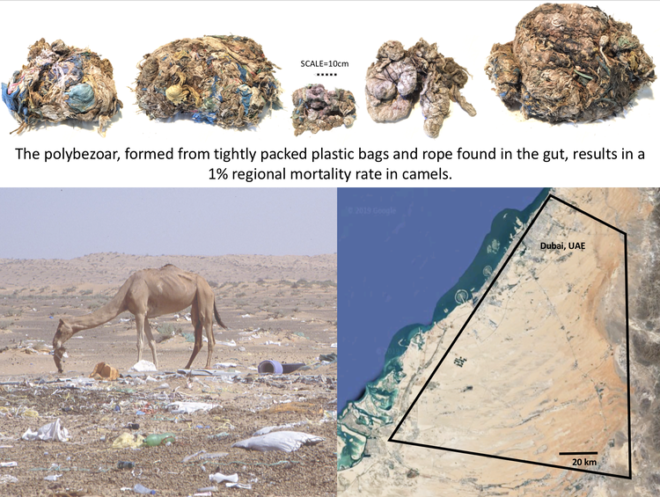
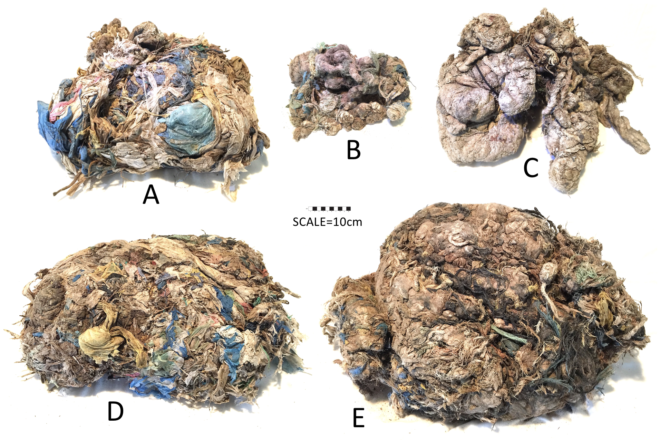
 Marcus Eriksen, the study’s lead author and co-founder of the 5 Gyres Institute, is one of a handful of researchers to have personally sailed through all of the Earth’s five subtropical gyres, where plastics accumulate. He has researched plastic pollution in the global oceans since 2008. This scourge, however, is far from limited to the “garbage patches,” he notes, but exists “in every body of water on the planet.”
Marcus Eriksen, the study’s lead author and co-founder of the 5 Gyres Institute, is one of a handful of researchers to have personally sailed through all of the Earth’s five subtropical gyres, where plastics accumulate. He has researched plastic pollution in the global oceans since 2008. This scourge, however, is far from limited to the “garbage patches,” he notes, but exists “in every body of water on the planet.”
Furthermore, the study Eriksen and his team published, finding a 1% mortality rate among dromedary camels ingesting plastic outside of the city of Dubai–on top of similar deaths and suffering he and others have observed in animals from elephants to reindeer, plastic fragments found in farmland, even evidence that humans are ingesting plastic trash–has convinced him that we must begin to loudly sound a different alarm.
“As a civilization, we have to stop talking about plastic pollution as if it were confined to our oceans and start talking about global plastic pollution harming life everywhere,” Eriksen says. “We have a plastic pollution pandemic from the tops of mountains to the bottom of the sea. A limited view limits our ability to solve the problem.”
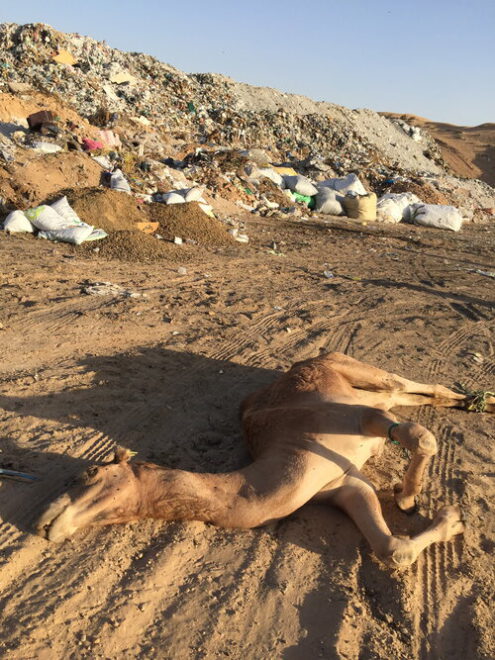
Study co-author, Ulrich Wernery, director of the Central Veterinary Research Laboratory in Dubai, United Arab Emirates, has been observing plastic waste in over 300 camels in the desert region near Dubai since 2008, as published in the Journal of Arid Environments. He and Eriksen found tightly packed, suitcase-size masses of plastic bags, ropes and other litter trapped in the animals’ stomachs and digestive tracts.
When ingesting this trash, the camels can feel a false sense of satiation and refuse to eat further, which leads to dehydration, malnourishment and death, they report. The indigestible materials also create gut blockages, ulcers and lacerations or deadly sepsis from abundant bacteria caught in the bags’ folds.
Eriksen, director of science and innovation at 5 Gyres, found some of the animal remains in the desert himself, noting that bags are carried for miles by high winds. “We pulled one of these masses out of a camel skeleton that had over 2,000 bags in it. I cut this open and it was plastic bags through and through.”
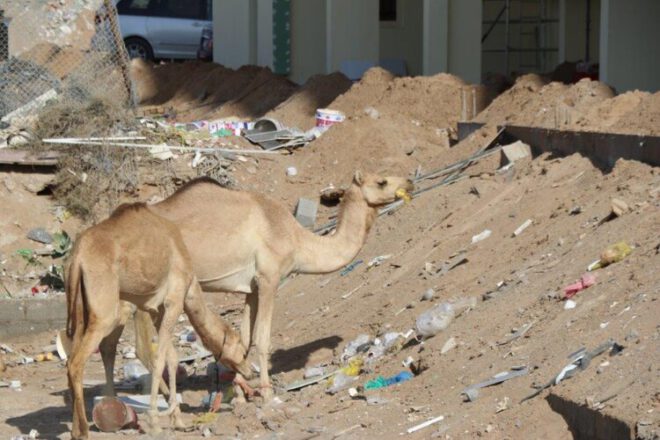
Many countries have independently banned single-use plastic items, but Eriksen and the 5 Gyres Institute urge world leaders–including the Biden-Harris Administration, which has been silent on this growing crisis–to take bold, swift action by joining an international legally binding agreement to tackle plastic pollution under discussion this week at the UN Environmental Assembly (UNEA). The world’s top environmental decision-making body, UNEA notes that “the planet is in crisis and nature must be at the heart of global efforts to build back better” after the coronavirus pandemic.
Oceanographer Charles J. Moore, credited with discovering and bringing the garbage patch concept to mainstream attention, echoes Eriksen’s call.
“Today it is widely acknowledged that vagrant plastic waste is polluting oceans, rivers, soil, food, the water we consume, and even the air we breathe,” Moore says. “We have to wake up and accept that this problem is much bigger than we’ve previously imagined. It’s time to talk about this like the planetary emergency it is and take action.”
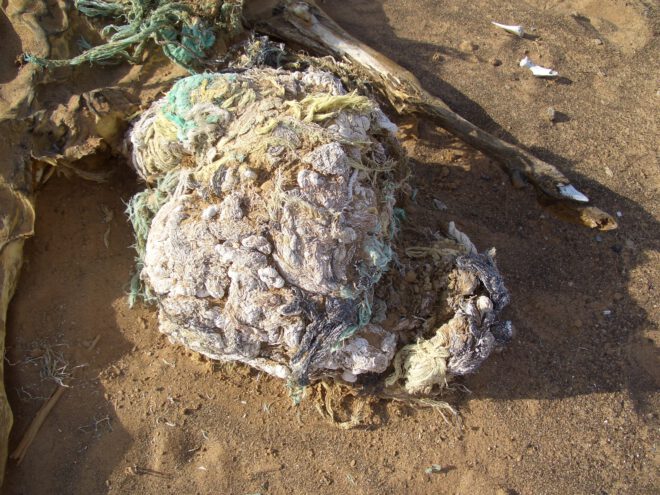
Jane Patton, an environmental health policy advocate with the Center for International Environmental Law (CIEL), agrees.
“This new study comes on the heels of others examining plastic in fish and birds and provides one more example of how the prevalence of plastic is having untold consequences on flora and fauna across the globe,” said Patton, CIEL senior campaigner. “Now we know this crisis is not just about human health, but the health of all beings. To confront the plastic crisis, it is critical that the world community adopt a new global agreement, addressing the entire plastic lifecycle.”
The 5 Gyres Institute is inviting all to join their efforts to protect camels by signing a petition urging the Biden Administration to join the binding international treaty on plastic pollution under discussion at UNEA this week.

